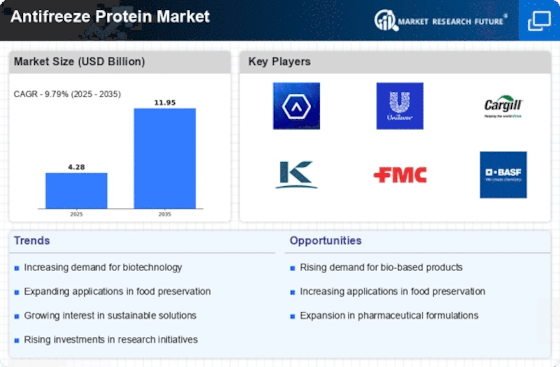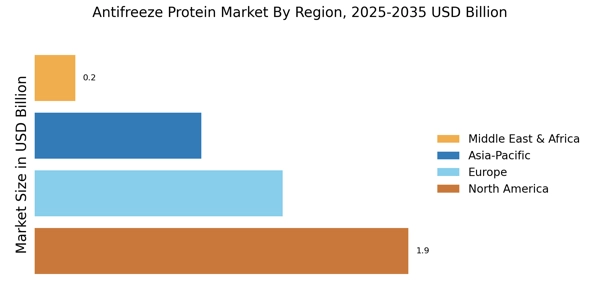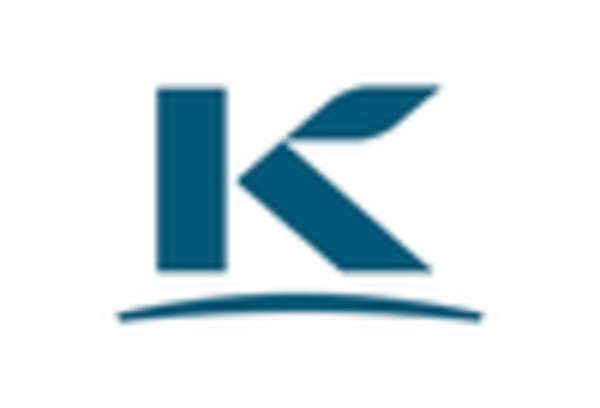Advancements in Biotechnology
The antifreeze protein Market is significantly influenced by advancements in biotechnology. Research and development efforts are leading to the discovery of novel antifreeze proteins with enhanced efficacy and stability. These innovations are not only improving the performance of antifreeze proteins but also expanding their potential applications across various sectors, including pharmaceuticals and agriculture. For instance, the ability to engineer antifreeze proteins for specific uses could open new avenues in crop protection and preservation. The market is projected to grow as these biotechnological advancements are commercialized, with estimates indicating a compound annual growth rate of over 10% in the coming years.
Rising Demand in Pharmaceuticals
The Antifreeze Protein Market is experiencing a rising demand within the pharmaceutical sector. Antifreeze proteins are being explored for their potential to stabilize biological materials, such as vaccines and enzymes, during storage and transport. This is particularly crucial in regions where temperature control is challenging. The pharmaceutical industry is projected to contribute significantly to the market, with estimates suggesting that it could represent around 25% of the total market share by 2026. As the need for effective storage solutions for sensitive biological products increases, the Antifreeze Protein Market is likely to benefit from this trend, fostering further research and development.
Increasing Applications in Food Industry
The Antifreeze Protein Market is witnessing a notable surge in demand due to its increasing applications in the food sector. Antifreeze proteins are utilized to enhance the shelf life of various food products by preventing ice crystal formation during freezing. This application is particularly relevant in the seafood and meat industries, where quality preservation is paramount. Recent estimates suggest that the food preservation segment could account for a substantial share of the market, potentially exceeding 30% by 2026. As consumers become more health-conscious and seek high-quality frozen foods, the Antifreeze Protein Market is likely to expand, driven by the need for innovative solutions that maintain food integrity during storage and transport.
Growing Interest in Sustainable Solutions
The Antifreeze Protein Market is increasingly aligned with the growing interest in sustainable solutions. As environmental concerns rise, industries are seeking alternatives to traditional chemical preservatives that may have adverse effects on health and the environment. Antifreeze proteins, being naturally occurring and biodegradable, present a viable option for sustainable food preservation and other applications. This shift towards eco-friendly solutions is expected to drive market growth, as consumers and businesses alike prioritize sustainability. The market could see a significant uptick, with projections indicating a potential increase in demand by over 15% in the next few years as awareness of sustainable practices continues to grow.
Expanding Research in Agricultural Applications
The Antifreeze Protein Market is benefiting from expanding research into agricultural applications. Antifreeze proteins are being studied for their potential to enhance crop resilience against freezing temperatures, which could lead to improved yields and food security. This is particularly relevant in regions prone to frost, where crop losses can be substantial. The agricultural sector is anticipated to become a key driver of market growth, with projections suggesting that it could account for approximately 20% of the market by 2026. As research progresses and the benefits of antifreeze proteins in agriculture become more widely recognized, the Antifreeze Protein Market is likely to see increased investment and innovation.

















